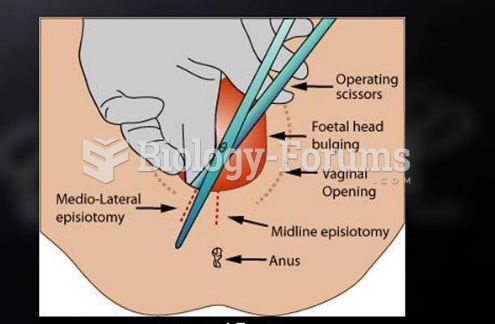|
|
|
Interferon was scarce and expensive until 1980, when the interferon gene was inserted into bacteria using recombinant DNA technology, allowing for mass cultivation and purification from bacterial cultures.
Although the Roman numeral for the number 4 has always been taught to have been "IV," according to historians, the ancient Romans probably used "IIII" most of the time. This is partially backed up by the fact that early grandfather clocks displayed IIII for the number 4 instead of IV. Early clockmakers apparently thought that the IIII balanced out the VIII (used for the number 8) on the clock face and that it just looked better.
The average human gut is home to perhaps 500 to 1,000 different species of bacteria.
Patients who have undergone chemotherapy for the treatment of cancer often complain of a lack of mental focus; memory loss; and a general diminution in abilities such as multitasking, attention span, and general mental agility.
It is widely believed that giving a daily oral dose of aspirin to heart attack patients improves their chances of survival because the aspirin blocks the formation of new blood clots.
 In the communication technique of collaborating, the nurse sends the message that the nurse and pati
In the communication technique of collaborating, the nurse sends the message that the nurse and pati
 Testing Visual Fields by Confrontation: The nurse and patient should be approximately at an eye to e
Testing Visual Fields by Confrontation: The nurse and patient should be approximately at an eye to e




